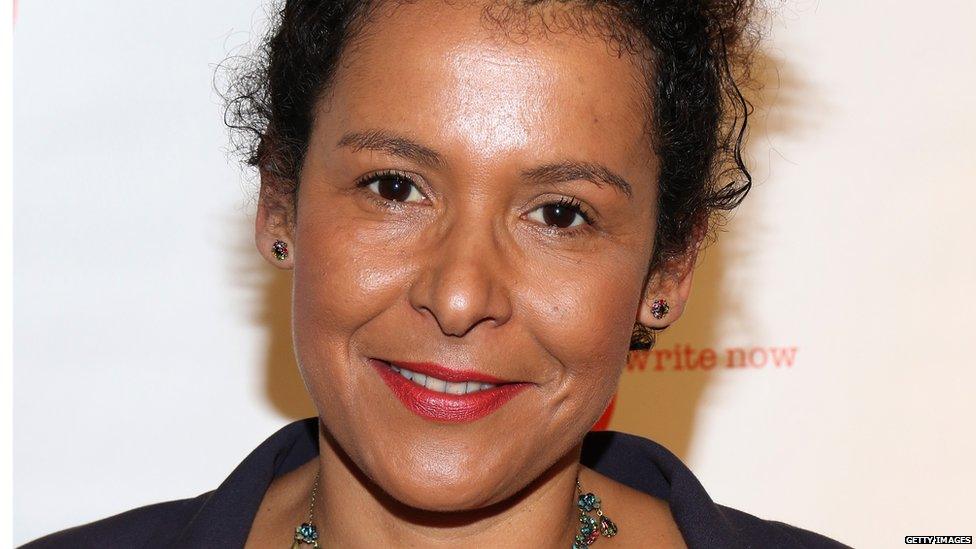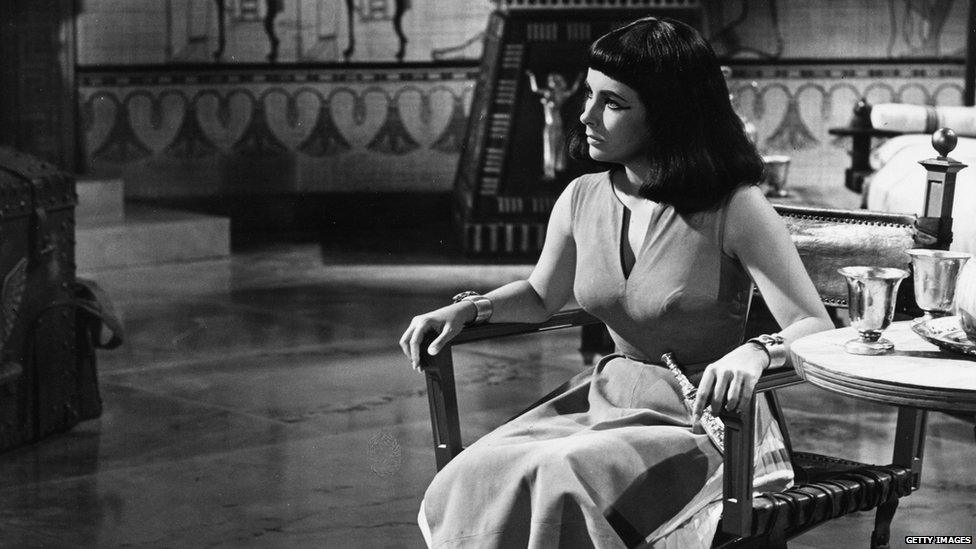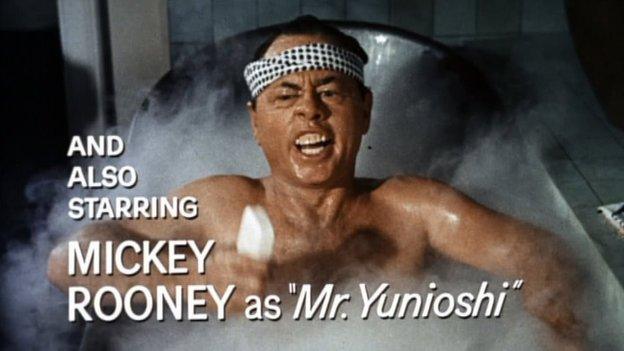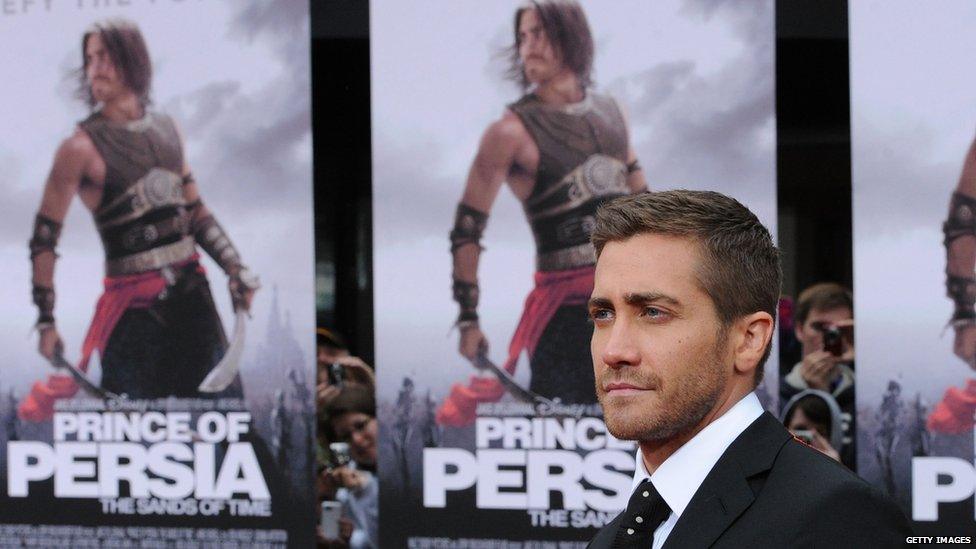Crowe's 'whitewashing' sparks criticism from advocates
- Published

Hollywood's reliance on bankable - and often white - actors has led to another round of sharp criticism of filmmakers for "whitewashing" roles where race and ethnicity play a part.
In Aloha, Cameron Crowe's latest film, Emma Stone, a American actress with blonde hair and green eyes, was cast as Allison Ng - a junior fighter pilot who was part-Chinese, part-Hawaiian and part-Swedish.
Soon after the release, there was an uproar of criticism from social media against Crowe's casting choice.
Both Asians and non-Asians asked why they didn't pick an Asian actress to play a character who is part-Asian.
One advocacy group called Aloha "a whitewashed film" that failed to portray the ethnical diversity of Hawaii.
The Media Action Network for Asian Americans (MANAA) noted 60% of Hawaii's population is Asian-American Pacific Islanders and 30% Caucasian, a fact not reflected in the film.

Angelina Jolie played Mariane Pearl, who is of Afro-Cuban, Chinese and Dutch descent, in A Mighty Heart
Crowe apologised on his website but said he based the Ng character on a real-life redheaded Hawaiian who felt compelled to constantly over-explain her unlikely ethnicity.
"I can understand what Crowe said about his intention that he based his character on someone that didn't look Asian but identified with the culture but you could have casted someone who was part Hawaiian," Guy Aoki, the founding president of MANAA, said.
"Whitewashing" casting differs from "colour-blind casting," where a role is cast when factors of race or ethnicity are irrelevant to the character or plot.
This practice is increasingly popular and has been adopted in several movies, including Samuel Jackson's turn as Nick Fury, originally a white character, in several Marvel superhero films, Lucy Liu playing Dr Watson, Sherlock Holmes' assistant, in the US TV series Elementary and Yasiin Bey portraying Ford Prefect in The Hitchhiker's Guide to the Galaxy.
In the latter case, the character's race was never specified in the original version.

Cleopatra was believed to have dark skin, unlike Elizabeth Taylor's portrayal of the Egyptian
Shonda Rhimes took a similar tack when casting her popular TV show Grey's Anatomy. None of the characters were assigned a race and the best actors were selected for each role.
Hollywood has been accused of whitewashing Asians for decades.
In the early days of big budget film, directors put eye and cheek prosthetics on actors to approximate Asian facial features. This is how Marlon Brando filled the role of a Japanese interpreter in The Teahouse of the August Moon, John Wayne became Genghis Khan in The Conquerors, and Mickey Rooney was cast as Mr Yunioshi in Breakfast at Tiffany's.

There was a lack of Asian actors in Hollywood in the 1950s, Lisa Nakamura, a professor of American culture at the University of Michigan said, but it is not an excuse today.
There are a multitude of Asian actresses who could have played Ng in Aloha, she said, including Kristin Kreuk, a bi-racial actress seen in the US TV show Smallville.
But Hollywood continues to cast popular white actors for economic reasons.
"They need to have names that most Americans recognise above the title," Nakamura said.
"Taking a risk on an actor that is not famous but fits the character's ethnicity is not a sound strategy to make money."
And so Hollywood casts famous white actors to attract the crowds, such as George Clooney who played Hawaiian lawyer in The Descendants, or director Ridley Scott who said he chose Christian Bale to play Moses in Exodus: Gods and Kings to get his movie financed.
But even if this strategy is profitable, Nakamura said that white actors playing Asian roles are not convincing, effectively breaking the movie's "fourth wall".
It's not only odd, Aoki said, it's also insulting to Asian actors, who struggle to find roles in a predominately white Hollywood.
"A white actor does not need to play an Asian person to survive in this industry," Aoki said.

There was sharp criticism of white actor Jake Gyllenhaal playing a Persian prince in a movie based on the popular video game
He added the outrage over Emma Stone's casting might mark the beginning of a change in the industry but he believes white people need to speak up and "say that this is not right, this is ridiculous".
But whitewashing still appears to be prevalent in today's Hollywood.
When Scarlett Johansson was cast as Motoko Kusanagi, a Japanese character in Ghost in the Shell, angry fans launched a petition calling for the actress to be dismissed from the role. And Tilda Swinton's negotiation to play the role of the Ancient One, a male Tibetan mystic, in Dr Strange has also been criticised on social media.
Nakamura said the industry will start changing when casting decisions are made based on talent and character's accuracy, but for now Hollywood will continue to cast famous white actors to bring in the audience.
"I think in the US this strikes a sensitive subject," Nakamura said. "But casting is important as it represents how viewers see themselves and that still matters."